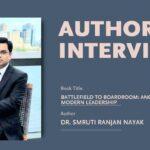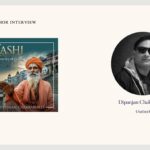
Mr. Bidhan Chandra Patra, was born on 1st July, 1970 in a small village of Jalbenti, under P.S- Gopiballavpur, in the then district of Midnapur (later West Midnapur and now Jhargram) in West Bengal, a highly Naxal affected area during 1960s-70s and 2000s. Staying at his native village he passed Class-IV from Jalbenti Prathamik Vidyalaya and Class-VII from Babu Dumro High School, which was founded by his father and the latter was also a teacher there.
Thereafter, he was sent to Bakra Shyama Smriti Vidyapith, a remote rural residential school and one of the six High Schools founded with the initiative of his father and dedicated to the service of the common men. He cleared the competitive examination and achieved National Scholarship in 1981 when he was in Class-VIII.
After passing Madhyamik Pariksha (Class-X) from West Bengal Board of Secondary Education in 1984 he joined Maharaja Purna Chandra College, Baripada, Orissa (now Odisha) and passed Higher Secondary Examination from Council of Higher Secondary Education, Orissa in 1986.
Thereafter, he joined Regional College of Education (now Regional Institute of Education), Bhubaneswar and passed B.Sc (Physics Honours); B.ED (4-Year Integrated Course under NCERT) in 1990. While pursing LL.B as a regular student from Campus Law Centre, University of Delhi during 1992-’95 academic session he joined Central Reserve Police Force (CRPF) as Assistant Commandant on 1st January, 1995 discontinuing his study. He completed M.A (Public Administration) from Annamalai University through correspondence in 2002-’04 academic session.
Later on he pursued LL.B from Mayurbhanj Law College, North Orissa University, during 2006-’09 academic session. He completed LL.M, with specialisation in Intellectual Property Rights during 2014-’16 academic session from Hooghly Mohsin College, University of Burdwan, when he was posted to Central Zone Headquarters of CRPF at Salt Lake, Kolkata as Commandant (Law). He has been awarded the University Gold Medal having been placed First in the First Class in the LL.M Examination, 2016. He has deep interest in the subjects of Jurisprudence, Intellectual Property Law, Constitutional and Administrative Law, Human Rights and Cyber Law.
As a Commander of CRPF he has served in the hypersensitive militancy affected areas of Jammu & Kashmir, insurgency affected areas of North-Eastern States and Maoist affected areas of the country and decorated with prestigious Medals and awards.
He is also the author of the book “Patenting Microorganisms and Genes”, which is a text book on Patent Law.
Presently he is working as Additional Judge Attorney General in National Security Guard, New Delhi.
The Asian Literature: Welcome to The Asian Literature, author. Congratulations on the release of your book. What responses are you getting from your readers? Please share your experience with this book.
Author: Thank you very much, The Asian Literature. I have been receiving very positive and encouraging responses from the readers of this book. I have worked hard to write this book and also to get it published. I have utilised my deep legal knowledge and 28 years of experience in dealing with service law in composing this book. I have given a practical approach to make this book very useful to those who are dealing with misconduct and disciplinary proceedings.
The Asian Literature: What encourages you to become an Author?
Author: It’s the strong desire to share my knowledge and experiences to those who will benefit from them that encourages me to be an author.
The Asian Literature: What are your favourite topics of writing? Please tell us something about your interest areas in the literature.
Author: My favourite topics of writing are Jurisprudence, Intellectual Property Law, Constitutional and Administrative Law, Human Rights and Cyber Law. I have deep interest in Jurisprudence, i.e., the theory or philosophy of law.
The Asian Literature: We were hoping you could tell us about some of those writers who had inspired you and whom you follow!
Author: I have my own unique way of thinking and composing things. I don’t follow any particular writer.
The Asian Literature: The titles seem different and catchy; how you decided it? Please let us know the story behind it.
Author: I have selected a very simple title just to help every reader understand the contents of the book.
The Asian Literature: What are your achievements so far? Tell us something about your writing career.
Author: My first book was “Patenting Microorganisms and Genes” which is a text book on Patent Law. This is my second book.
The Asian Literature: What is your current goal in writing a career? How do you see your future in writing?
Author: I shall keep writing on Service Laws and Intellectual Property Laws.
The Asian Literature: Are there any other books being worked by you? Please let us know about your future projects.
Author: Yes, I am writing on Judicial Trial in Central Reserve Police Force (CRPF). I am thinking of writing on Preliminary Enquiry and Court of Inquiry since I have been receiving frequent requests from Government Employees.
The Asian Literature: How you see Indian writing in the 21st century? What changes do you see in the modern way of writing? Do you feel it has been changed by the time?
Author: Facts of any issue are always accepted and respected. I am not very much fond of living in virtual worlds. I am quite realistic and expect that writers should focus more on the real world.
The Asian Literature: How easy/ difficult it was for you to publish your book? What message would you like to give to budding authors?
Author: It was very difficult for me to find an competent Publisher. Many Publishers don’t bother about the Author’s likings and sentiments and try to dictate terms with the Author. Publishing a book should create a win-win situation for both the Author and the Publisher.
I must suggest the budding authors to first choose an honest Publisher and to go through the terms and conditions of the agreement which are required to be signed by the Author and the Publisher. If required, the same may be got vetted by a lawyer.


I have leart the book, it is an examplary book in term of practical context of Laws for Cetral Employees. This book showing utmost dedication and diligence of the writer (Shri Bidhan Chandra Patra who is a senior officer of CRPF) . Laws, Acts and rules elaborated in the book are very essential to know everyone who served in Central Government, especially in CAPFs. It is also pertaining to mention that the writer of the book Shri Bidhan Chandra Patra is great person in nature and humanity.
The book “Disciplinary Proceedings In Civil Services” by Bidhan Chandra Patra is the well researched book. I have read till date This book contains various topics related to Misconduct, Suspension, Penalties and Disciplinary Authorities , etc in Central Civil Services. The cases in Civil Services are well explained. It is easy to understand , covering each and every topics .I am thankful to author for creating such a wonderful art of work.
The book “Disciplinary Proceedings In Civil Services” by Shri Bidhan Chandra Patra is excellent book. I have read this book and found very useful. The author has explained the rules very well and had also mentioned relevant Hon’ble courts decisions, which helps a lot to Inquiry Officers while taking decisions on objections of prosecution and defence. The author has taken care of both disciplinary authority and government official . Book is written in very simple language and easy to understand. It is unique book of its kind.